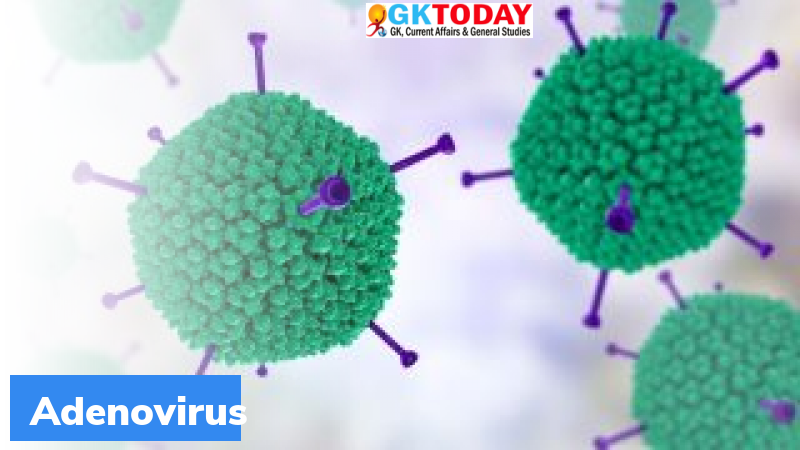What is Adenovirus?
The US health authorities recently paused the rollout of one-shot Johnson and Johnson COVID-19 vaccine. The vaccine uses similar technology as that of the Astra Zeneca vaccine. Both the vaccines are developed from adenoviral vectors.
Why did the US stop Adenovirus based vaccines?
Around six women in the US suffered from blood clots out of seven million administered doses. The vaccine has been found to have a link with a very rare vaccine induced immune thrombotic thrombocytopenia.
The Astra Zeneca Vaccine uses Adeno virus from Chimpanzee. Other companies use Adenovirus from humans to develop COVID-19 vaccine.
What is Adenovirus?
- Adenovirus causes wide variety of illness in humans. This includes from gastrointestinal infections to common cold.
- Scientists use these viruses as “Viral Vectors” in making vaccines. Viral vectors are tools used to deliver genetic material into cells.
How is Adenoviral vector made?
The Adenoviral vector is made by removing the genetic material that could allow the virus to replicate or spread disease. This adenoviral shell is then inserted with genetic instructions on how to target another virus (like COVID-19 virus).
An adenovirus looks like a serious vector to the immune system of human body. Thus, the immune system responds seriously. This is why people have been reporting fatigue, fever or sore arm after receiving vaccine dose.
Why are Adenovirus based COVID-19 vaccines mostly single shot vaccines?
The Adenovirus infections are common in humans. Thus, human immune system would have already developed certain antibodies against them. This limits the number of administered doses. This is why several Adenovirus based COVID-19 vaccines are stopped with single shot. For instance, the Johnson and Johnson vaccine and Casino vaccine of China are both single dose vaccines.
Month: Current Affairs - April, 2021


